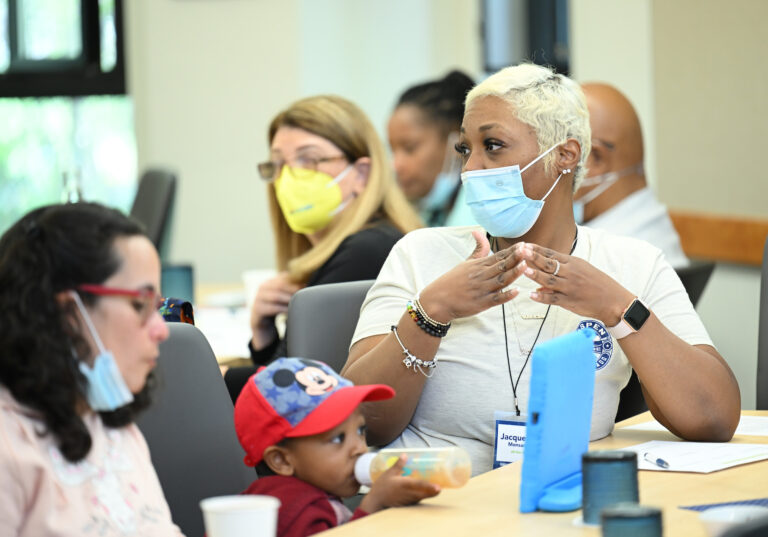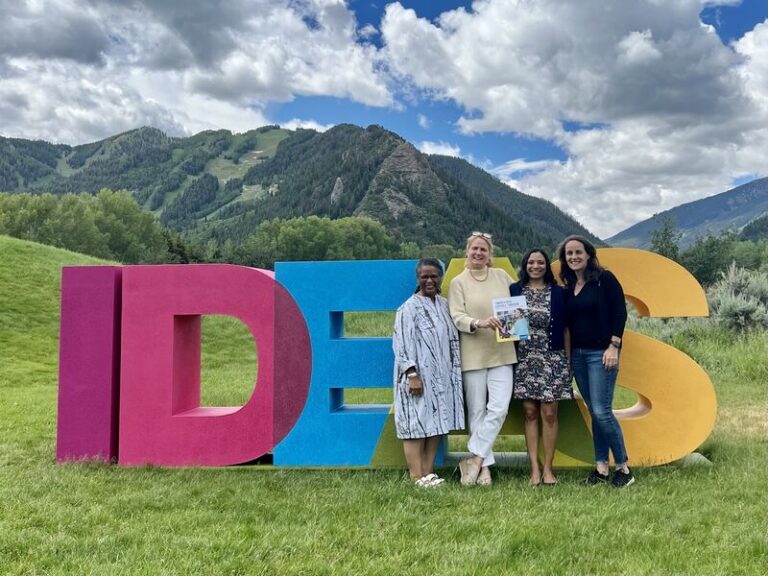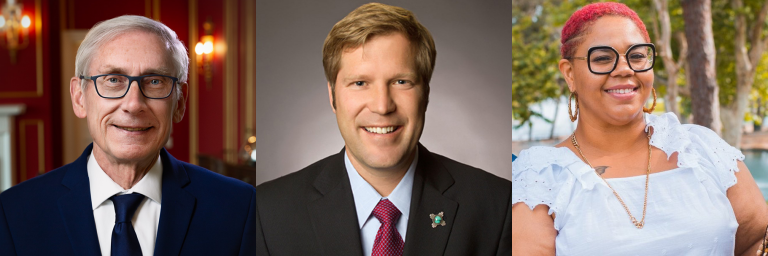Meeting Parents Where They Dream: Critical Voices and Lived Experiences
At the second Aspen Forum on Children and Families last month we brought together national leaders – policymakers, practitioners, researchers, philanthropists and parents – to surface big ideas for investing in the full potential of children and families, two generations at a time.
Centering parents’ and caregivers’ perspectives is vital to Ascend and our work with the Aspen Family Prosperity Innovation Community (Family Prosperity). Family Prosperity is a powerful community of national and community-based organizations and experts working to strengthen the health, well-being and financial stability of families with low incomes. Together, we are developing and sharing bold strategies and solutions.
The Forum on Children and Families provided momentum for big ideas about moving families toward opportunity. This was crystallized in the first panel called Meeting Parents Where They Dream; you may find a recording of the session here. It was an inspiring conversation with parents who shared their hopes for their children’s future and recommendations for standing with them.
Our work is about authenticity, respect, and power – who has it and who should have it. If we are not authentically thinking about parent-powered solutions, we are missing the boat. That’s why meeting parents where they are is not enough – we are setting our sights on supporting the goals and aspirations they have for themselves and their families.
Rynn Bell, parent support provider for SafeCare Colorado and Family Tree; Shannon Davis, parent ambassador for Garrett County Community Action Committee in Maryland; and STRIVE graduate Daniel Torres shared their journeys – not only of escaping poverty, violence, and addiction, but also of resetting expectations for themselves so they can achieve their dreams.
Ascend Fellow Raquel Hatter, managing director of human services for the Kresge Foundation, moderated the conversation. She encouraged us to let our preconceptions fall away, focus on the parents, and keep our minds open. “I went to a couple schools, I think education is important,” she said playfully, “but parents have been trying to tell us for years about toxic stress. They’re sick and tired of being sick and tired, so I’m glad we’ve finally caught up with what families are trying to tell us.”
This was a major theme throughout the panel: Empathy and compassion mean listening to parents. We know how important it is to hear from them about their experiences – and to elevate their voices with policy leaders. Our panelists were joined by Lynn Johnson, assistant secretary for the Department of Health and Human Services’ Administration for Children and Families, who encouraged the parents to share their advice for her.
They didn’t hesitate: Prioritize mental health and substance abuse support. Give parents one-on-one attention. Increase funding and support for child care and children with special needs. And above all, include parents in decision making. “If you want to see more families succeed in the process, they should be a part of that process,” Rynn said.
The panel also challenged traditional thought about prosperity and reminded us that success is personal and needs to be defined by parents and families themselves. Advocates from all sectors need to take that approach or they risk missing the point. As Raquel said, “The public sector has a role, the private sector has a role. It’s partnerships, listening to families that will make that difference.” She also noted the importance of recognizing racial inequity, and that respecting the lived experiences of working families of color is critical to supporting their success.
I was deeply moved by Raquel’s response to Shannon Davis when she said she felt overwhelmed by the support for “people like us.” Raquel said to her, “You guys aren’t ‘people like us.’ We’re all in this together. It’s just ‘us.’” This is truly what Family Prosperity is about – bringing the voices of the people who are living these experiences to the policy fore. Opening a dialogue with decision makers. Building innovative new paths to prosperity. And facilitating the connections that create empathy, forge a community, and turn parent voices into real policy change.
Anne Mosle is vice president at the Aspen Institute and executive director of Ascend at the Aspen Institute.
Photo caption, from left to right: Daniel Torres, graduate, STRIVE; Shannon Davis, parent ambassador, Garrett County Community Action Committee. Credit: © The Aspen Institute: Photo by Riccardo Savi.
Related Posts















